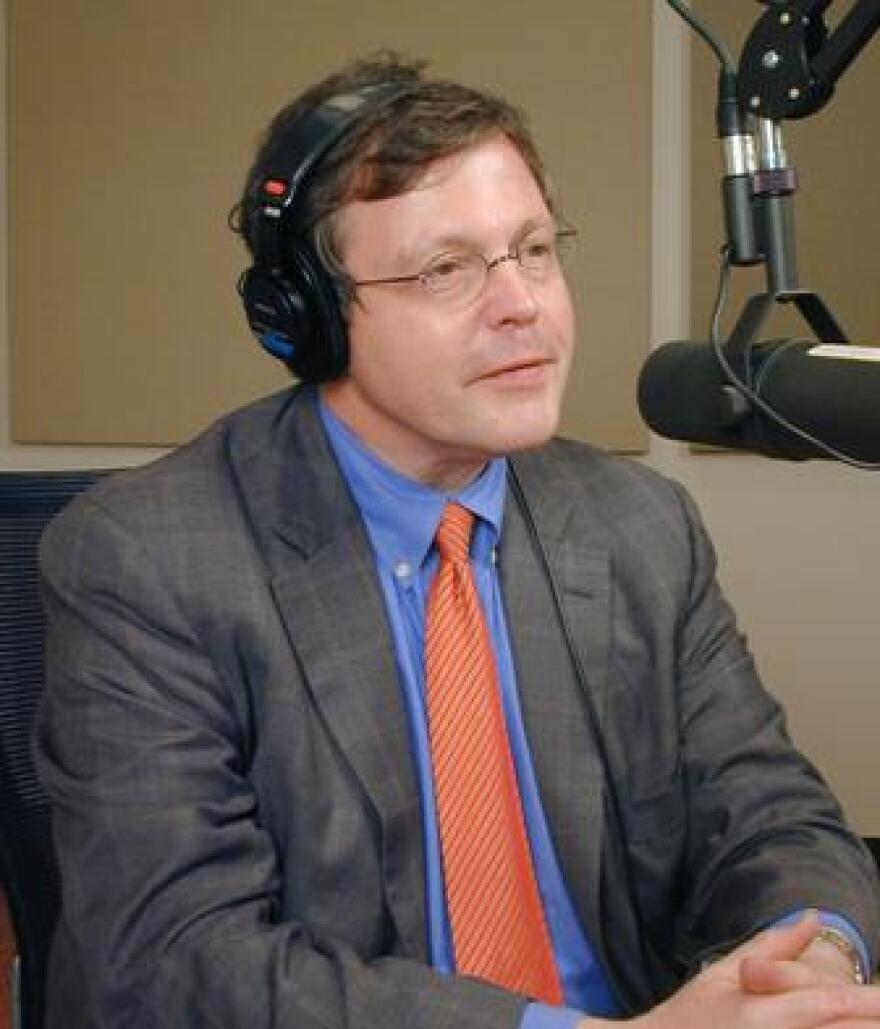Every Wednesday, Morning Edition Host Christina Shockley sits down with Michigan Radio Senior Political Analyst Jack Lessenberry to get his take on recent political news from across the state. Today, the conversation begins by focusing on Governor Granholm's expression of support for President Obama's recent compromise with Republicans. On Tuesday, Obama agreed to extend Bush-era tax cuts for all taxpayers in exchange for an extension of unemployment benefits.
Mr. Lessenberry thinks there are a couple of ways to view Granholm's praise for Obama. "It's normal to sort of rally around the President if you're a Democratic high-office holder," says Lessenberry, "The cynical may think that she also wants a job. It's pretty clear that she's going to need a job after January 1, and it behooves her in many ways to do this."
With her time in office dwindling, Governor Granholm also announced this week that she believes Michigan's economy is finally improving and that the auto industry has rebounded in Michigan. She made these remarks at a Chrysler assembly plant in Sterling Heights that is adding a shift.
While the auto industry is nowhere near being back to its former prominence in the state, Mr. Lessenberry says the reinvestment made by Chrysler in the Sterling Heights Assembly Plant is certainly a positive sign for the industry. "It (the Sterling Heights Assembly Plant) was slated to be closed, and then Chrysler, prodded by the governor and other state officials, invested close to one billion dollars in it," says Lessenberry, "They're keeping the 1200 workers or so that they have and adding another 900, so it's good news for this particular plant."
As to Governor Granholm's comments about the auto industry and Michigan's economy, Lessenberry acknowledges that Granholm may be trying to shape her legacy a bit before she leaves office. However, he adds, "This is a good news story and we haven't had a whole lot of economic good news in Michigan so you can't blame the Governor for wanting to put a positive spin on something."
Meanwhile, just outside of Grand Rapids, the city of Wyoming has banned medical marijuana. Supporters of medical marijuana in the city have responded by attempting to recall members of the city council.
Across the state, municipalities have been struggling to interpret Michigan's medical marijuana law due to its lack of detail regarding distribution and regulation as well as its contradiction with federal law. Lessenberry calls the entire situation a "mess."
First of all, Lessenberry says that local communities are not allowed to nullify state law. Second of all, states are not allowed to nullify federal law, either. But Lessenberry says, "It's not entirely clear whether medical marijuana is illegal under the federal government's statutes or not."
Even though Michigan voters approved the legalization of medical marijuana in 2008, the law's implementation has been a source of confusion for local governments. "Wyoming is saying, interestingly, that there's really not a proper mechanism, not a proper regulatory system, in place for medical marijuana in Michigan," says Lessenberry, "This is going to be something, probably, that is dragged through various levels of courts for a long time."
Back in southeast Michigan, a Wayne County judge sided with the Detroit Board of Education by agreeing that Detroit Public Schools Emergency Financial Manager Robert Bobb overstepped his authority by attempting to implement his own academic plans for the school district.
No matter whose side you're on, the whole situation creates even more confusion for Detroit Public Schools, says Lessenberry. "Robert Bobb contends that you can't improve the finances without addressing the academic question at the same time," he says, "The Detroit Board of Education has sort of a spectacular record of failure over many years in getting the academics done. Whether it's their fault or not is another issue."
Lessenberry says he expects Robert Bobb to appeal the court's ruling. Regardless of how the higher courts rule in the case, Mr. Lessenberry says the situation has "thrown into limbo academic progress in a district that desperately needs to make some."






